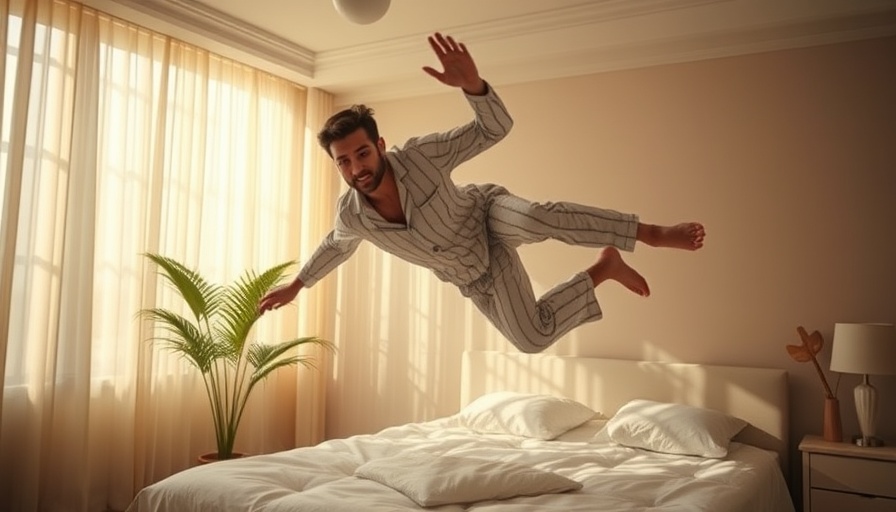
Understanding Hypnic Jerks: The Startling Sleep Phenomenon
If you've ever jolted awake just as you're drifting off, you may have experienced a hypnic jerk. This sudden muscle contraction occurs during the transition from wakefulness to sleep, often interpreted by the brain as a falling sensation. The body involuntarily reacts with a quick muscle twitch, a reflex designed to prevent what it perceives as a potential falling disaster, ensuring that you're still alert, even in sleep.
In 'Why you sometimes jerk awake when falling asleep!', the video discusses the phenomenon of hypnic jerks, offering insights into its causes and triggers. This analysis expands on those points, providing deeper understanding and actionable tips for managing sleep disturbances.
The Influence of Stress on Sleep Quality
While hypnic jerks are harmless, factors such as stress and anxiety can increase their frequency. When our minds are overwhelmed, they can interfere with the smooth transition into sleep, making it easier for these startle responses to occur. Managing daily stress through mindfulness techniques, regular exercise, or relaxation strategies can help mitigate this phenomenon, promoting a more restorative night's sleep.
Caffeine Consumption: A Hidden Culprit
Another surprising factor in the frequency of hypnic jerks is caffeine intake. Consuming coffee or other caffeinated beverages too late in the day can leave us with heightened alertness when we’re trying to wind down, triggering more muscle contractions as our bodies attempt to relax into sleep. If you’re looking for better sleep quality, considering reducing caffeine consumption in the afternoon can be beneficial.
Physical Activity: The Double-Edged Sword
Interestingly, while regular physical activity is vital for maintaining overall health and well-being, working out late in the day can also contribute to increased hypnic jerks. Exercise raises adrenaline levels, which can keep the body in a heightened state of tension. Establishing a workout routine earlier in the day can ensure that the muscles are relaxed by bedtime, thus reducing the chances of experiencing those annoying jolts during sleep.
Effective Strategies for Better Sleep
To improve your sleep and reduce hypnic jerks, consider incorporating these strategies into your routine:
- Relaxation Techniques: Strategies like deep breathing, meditation, or yoga can tame stress and signal to your body that it’s time to sleep.
- Bedtime Routines: Create a consistent wind-down routine that prepares your mind and body for sleep.
- Sleep Environment: Ensure your sleeping space is cozy, cool, and dark to facilitate restfulness.
Understanding hypnic jerks can empower you to create conditions that foster peaceful sleep. The knowledge of how stress, caffeine, and physical activity can affect your sleep gives you the tools to make informed choices that enhance your overall health.
If you are experiencing chronic sleep disturbances or have concerns about other sleep-related phenomena, consider consulting with a healthcare professional specializing in sleep disorders. They can provide tailored advice and explore treatments that can ensure you achieve restful sleep.
 Add Row
Add Row  Add
Add 




Write A Comment